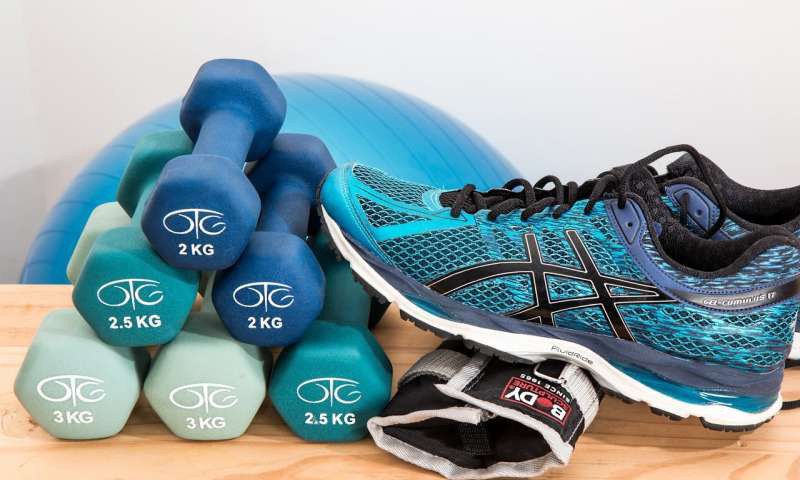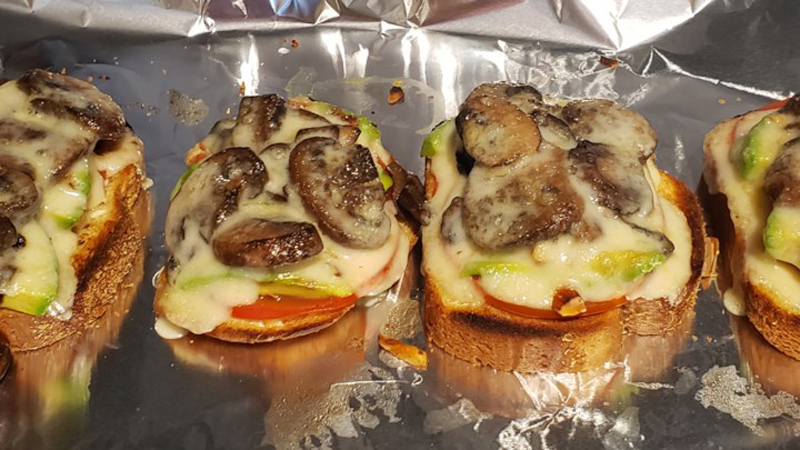
Exercise adds up to big brain boosts
March 25, 2019
California Melt
March 25, 2019Our relationship with food currently is unlike anything our ancestors would ever have known and workplaces may add further complications.
A lot of us are really interested in food these days. We’re conscious of what’s fueling us in a way that we never have been before. We’re aware of calories, macronutrients, micronutrients and the relationship between our gut health and our mental health. We read article after article debating carbs vs no carb diets, paleo vs keto vs vegan, vegetarian vs pescetarian and every other vs food or diet combination you can imagine. Our diet has probably never been under as much scrutiny and debate as it currently is. Now, there is probably a good reason for this. Over 70% of the adult population in the US are overweight or obese. However, our workplaces may be adding to the complexity of the issue.
Wherever you’re at with your eating habits, the office can be a hard place to exercise the food behaviors we often would like to. Firstly, our colleagues can often be overly interested in what we’re eating and how we’re eating (intermittent fasting, one meal a day, sugar-free etc). This is often the case for people who eat in a more restrictive way – exercising planning and routine with their food choices – and people who eat in a more fluid way – picking up whatever you fancy. So there’s often no escaping the interest of colleagues. That interest isn’t always a bad thing, sometimes it can feel nice to talk about the choices we’re making and why we’re making them. Only if we want to though. When that interest becomes a problem is when it’s attached to unhelpful opinions, food shaming, judgments or black and white ideas around how people should and shouldn’t be eating.
Secondly, workspaces are often rife with hyperpalatable foods. Hyperpalatable foods are foods often high in fat, sugar, and salt. Alongside these, they also have additives and flavors that add to their tempting nature. If you’re thinking birthday cake, cookies, brownies, chocolate, pizza and chips you’re correct! Several recent studies found that these kinds of foods share multiple features with addictive drugs and that they can trigger similar responses in our brain and addictive behaviors with these foods. These are hard foods to stay away from and say no to. These ‘addictive substances’ hide in plain sight in the workplace. Food being hard to say no to is fine when we have a choice over our proximity to it. That isn’t the case in the places we work, however. The culture of celebrating and sharing hyperpalatable foods still exists. More and more offices are adopting the practice of Fika, a Swedish cultural concept of taking the time for a coffee and cake break. Another increasingly commonplace example is bringing chocolates or sweet treats in for Sprint Retrospectives in the software world. Some open-plan office spaces also have beer and sweet treats on tap and bringing treats in for birthdays is still the norm. Please note that there is no commentary on whether these are good or bad things, just that they make the temptation consistently present.
The third reason our relationship with food is harder to manage at work is because of the reward we get when we eat them. These foods have the greatest addictive potential and at work, a little reward goes a long way at making a workday more enjoyable. That reward is happening at a neurological level, sparking our reward pathways and giving us a pickup that we’re likely to crave again and again. If we agree that our relationship with food is harder to manage in the workplace what can we do about it?
Stop Labelling & Sharing If You Don’t Want To – When a colleague enquires about your chosen meal/diet/food choice/eating time etc disengage with the conversation. You can do this politely by saying you’d rather not talk about it or you can be even subtler by saying that you choose not to label your diet as you don’t find it helpful. Close down the conversation and it’s likely it won’t come up again with that person.
Make Choices Before You Get To The Office – You can do this every day. Decide to say no to any offers you don’t want to accept and that don’t align with your food choices that day. That way when the cake comes around you’ve already decided on what you’re going to do.
Don’t Negotiate – When the tempting choices do present themselves don’t negotiate with yourself. If you made a choice that best represented you this morning stick to it. When the little voice of desire starts whispering about that piece of cake/cookie/pizza etc give it a firm internal “no” and shut it down.
Change Your Behaviors – Sometimes willpower isn’t enough around temptation and changing behaviors can make a huge difference in how much willpower you have to exercise. Take some time away from your desk when you know the cake is going to be handed out so you don’t even have to pass on it. Eat your lunch elsewhere if you don’t want to engage in any food-based conversations or watch your colleagues eating tempting food. Bring your own food to work so you don’t have to choose from what’s available to you close by, this also mitigates decision fatigue around food choices that can lead to us making ones that don’t align with our goals around food. Eat in a place that’s peaceful so you can take the time to eat mindfully and enjoy what you’re eating instead of rushing it and never enjoying your food or connecting with a feeling of fullness.
Plan Ahead – If you know a birthday cake is going to be passed around next week for someone’s birthday and you just don’t have the energy to deal with that whole process work from home that day if you can. Bringing your own food can also count as planning ahead as well as deciding how you want to engage in talk about food in the workplace and what you want your colleagues to know about your diet and food choices.
Support One Another – If you have relationships with other colleagues who are also struggling to exercise the behaviors they would like around food work together to support each other. Share your goals and use each other for accountable and support. Eat lunch together, share when it’s difficult and plan ahead together when you need to.


